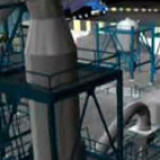Electric Cars vs. Hydrogen Cars: Which is the Future of Sustainability
As the world faces climate change and pollution, the transportation industry is shifting toward sustainable alternatives. Two major options leading the way are electric vehicles (EVs) and hydrogen fuel cell vehicles (FCVs). Both provide eco-friendly solutions to replace gasoline-powered cars, but which one is the future of sustainability? Let’s explore their advantages and challenges- Electric Cars vs. Hydrogen Cars.
The Rise of Electric Vehicles (EVs)
Electric vehicles have become increasingly popular, with companies like Tesla, Nissan, and BMW driving innovation. These cars use rechargeable lithium-ion batteries and produce no emissions while in use, making them an environmentally friendly choice.
Advantages of Electric Vehicles:
- Zero Emissions: EVs do not produce harmful gases, reducing air pollution.
- High Energy Efficiency: Over 75% of the energy from the grid is converted into movement, making EVs highly efficient.
- Lower Operating Costs: Electricity is cheaper than gasoline, and maintenance costs are lower due to fewer moving parts.
- Growing Charging Infrastructure: Charging networks like ChargePoint and Tesla Supercharger are expanding, making long-distance travel easier.
Challenges of Electric Vehicles:
- Limited Range and Charging Time: EVs require charging, which takes longer than refueling a gas car.
- Battery Production Impact: Mining materials for lithium-ion batteries can harm the environment, but research into sustainable alternatives is ongoing.
Hydrogen Cars: A Potential Alternative
Hydrogen fuel cell vehicles, such as the Toyota Mirai and Hyundai Nexo, use hydrogen gas to generate electricity and power the car’s motor. Their only byproduct is water vapor, making them another clean energy solution.
Advantages of Hydrogen Cars:
- Fast Refueling: Hydrogen cars can refuel in just five minutes, similar to gasoline cars.
- Longer Range: Many FCVs offer driving ranges comparable to traditional cars.
- No Large Battery Waste: Unlike EVs, hydrogen cars do not rely on large lithium-ion batteries, reducing disposal concerns.
- Abundant Energy Source: Hydrogen is widely available and can be produced using renewable energy.
Challenges of Hydrogen Cars:
- Limited Refueling Infrastructure: Hydrogen stations are not as common as EV chargers, making refueling difficult.
- High Production Costs: Producing hydrogen fuel is expensive and requires further technological improvements.
- Lower Energy Efficiency: Hydrogen fuel production, storage, and transportation require significant energy, reducing overall efficiency.
Which is the Future of Sustainability?
At present, electric vehicles are leading due to better infrastructure, affordability, and wider consumer adoption. However, hydrogen cars still hold great potential, especially for commercial transport and long-haul trucking.
The future may involve both technologies coexisting. Governments and industries should continue investing in research, infrastructure, and clean energy to improve both options and accelerate the transition away from fossil fuels.
| Feature | Electric Vehicles (EVs) | Hydrogen Fuel Cell Vehicles (FCVs) |
|---|---|---|
| Emissions | Zero emissions while driving | Only emits water vapor |
| Energy Efficiency | High (75-90% efficiency) | Lower (30-40% efficiency) |
| Refueling/Charging Time | Several hours (or ~30 min with fast charging) | 5-10 minutes |
| Driving Range | Typically 150-400 miles | 300-400 miles |
| Infrastructure Availability | Expanding fast-charging networks | Limited hydrogen stations |
| Cost | Generally more affordable upfront | Higher initial cost |
| Maintenance | Lower (fewer moving parts) | Similar to gasoline vehicles |
| Battery/Fuel Production Impact | Lithium mining has environmental concerns | Hydrogen production requires energy |
| Best Use Cases | Daily commuting, city driving | Long-distance travel, heavy transport |
Making a Sustainable Choice
Switching to eco-friendly vehicles is a step toward a cleaner planet. Whether you choose an EV or a hydrogen car, reducing dependence on gasoline is key to sustainability.
To learn more about sustainable transportation, visit:
- U.S. Department of Energy – Alternative Fuels Data Center
- World Economic Forum – The Future of Mobility
- Tesla – Sustainable Energy Solutions
The transition to greener transportation is happening now. Every step counts in building a cleaner and more sustainable future!
































